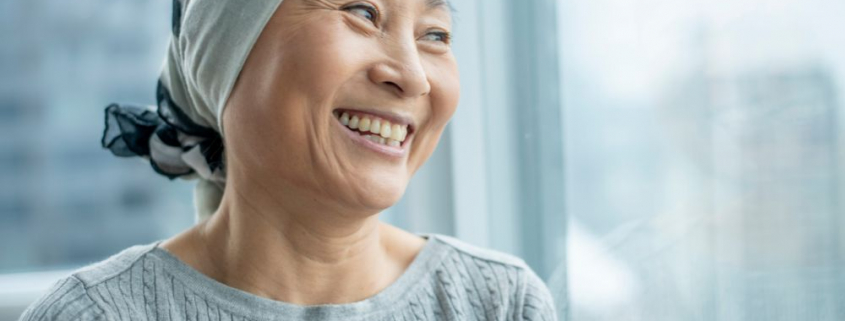Acupuncture and Cancer Survivorship
Cancer treatment is finished! Now life can return to normal! Or can it?
Thanks to earlier diagnosis and improved treatment, more people are surviving longer after a cancer diagnosis. Today, half of people diagnosed with cancer can expect to survive their disease for at least 10 years, often longer.[1] Cancer is now regarded as a chronic, rather than a terminal, illness. This is good news.
What are the consequences of cancer treatment?
The end of cancer treatment does not necessarily signal a return to good health. Survivorship has been described as “being disease-free, but not free of your disease: cancer survivors report poorer health and wellbeing than people who have not had cancer.[2] Many experience consequences of cancer and its treatments: “consequences” are the long-term physical and psychosocial changes that appear to be associated with cancer and its treatment, regardless of how long ago the treatments were given.[3]
Some of the many physical consequences include:
- chronic pain, including pain from surgical scars, chemotherapy induced peripheral neuropathy (CIPN), and joint and muscle pains associated with aromatase inhibitors
- hot flushes and night sweats
- lymphoedema
- fatigue
- sleep disorders.
Emotional consequences include:
- fear of recurrence
- anxiety
- depression
- isolation
- loss of confidence.
Social and professional roles may be affected. Late effects of cancer treatment include potential development of new primary cancers, heart disorders, and other serious conditions.
How can acupuncture help cancer survivors?
In nearly 25 years of research and clinical practice in supporting people who have completed cancer treatment (surgery, chemotherapy, radiotherapy), I have observed how acupuncture can help them to recover and renew their lives and adjust to the “new normal”.
Acupuncture can and should be considered part of the multi-disciplinary care of people living with and beyond. It has the capacity to address complex presentations commonly experienced by cancer survivors: survivors report 3-13 consequences of cancer and experience more co-morbidities than comparable non-cancer populations, in addition to pre-existing conditions and the health issues that arise with ageing.
Acupuncture offers a non-pharmacological option for managing both physical and emotional conditions, often within the same treatment. This is important because many of the consequences of cancer treatment have limited options for biomedical treatment. Additionally, many cancer survivors do not wish to take further medications, and non-pharmacological options for managing pain are especially welcome in the age of the opioid crisis.
How can I find out more?
It is helpful for cancer survivors to understand that cancer treatments do have consequences and that these may affect their health and wellbeing. It is also helpful for them to be aware that acupuncture can help to alleviate these symptoms. Similarly, acupuncturists can benefit from understanding the challenges of cancer survivorship and how acupuncture can address these.
My book Acupuncture and Cancer Survivorship: Recovery, Renewal and Transformation, [link to website page] is the first peer-reviewed, evidence-based book on this subject. While written for acupuncturists, it can also inform cancer survivors about how acupuncture can address chronic problems arising from cancer treatments. The many patient vignettes and case studies provide real-life examples of the issues cancer survivors face, and how acupuncture addressed these.
With an estimated five million cancer survivors in the UK, there is a great need for treatment options to address the consequences of cancer treatment. Acupuncture can be a valuable contributor to meeting this need for care. In over two decades of research and practice, I have heard many cancer survivors say: “Acupuncture has given me my life back”.
June 2023
References
- Macmillan Cancer Support, Statistics fact sheet. 2021, Available at https://www.macmillan.org.uk/_images/cancer-statistics-factsheet_tcm9-260514.pdf
- National Cancer Institute, Facing forward: life after cancer treatment. 2018, Available at https://www.cancer.gov/publications/patient-education/life-after-treatment.pdf
- Macmillan Cancer Support, Throwing light on the consequences of cancer and its treatment. 2013, Available at http://www.macmillan.org.uk/Documents/AboutUs/Research/Researchandevaluationreports/Throwinglightontheconsequencesofcanceranditstreatment.pdf
-
More people are surviving cancer but what’s it like to live with the side effects? Ben Spencer, Science Editor, The Sunday Times, 18 June 2023
- People call me brave for going through cancer treatment – but the scary bit starts now. Hilary Osborne, The Guardian, 8 June 2023
https://www.theguardian.com/commentisfree/2023/jun/08/cancer-treatment-brave-chemotherapy-medical-care


